Thomas Boecker Interview: Recollecting Symphonic Fantasies
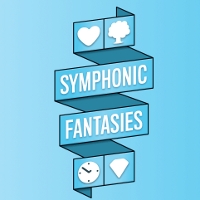
Thomas Boecker is the producer of the acclaimed game music concertsSymphonic Fantasies and Symphonic Shades that recently premiered in Cologne, Germany. This week, he announced a new tribute concert entitled Symphonic Legends will occur at the Cologne Philharmonic Hall on September 23, 2010. Tickets for the concert have just gone on salehere.
In this interview, Boecker recollects his experiences on Symphonic Fantasies. He also discusses his involvement in other productions, including the Symphonic Game Music Concert series, PLAY! A Video Game Symphony, Sinfonia Drammatica, and Distant Worlds. Finally, he informs readers about Symphonic Legends, a possible CD release for Symphonic Fantasies, and a series of school concerts dedicated to Super Mario Galaxy.
Interview Credits
Interview Subject: Thomas Boecker
Interviewer: Chris Greening
Editor: Chris Greening
Coordination: Chris Greening
Interview Content
Chris: Thomas Boecker, we appreciate you taking time out of your busy schedule to speak to us. First of all, could you reminisce about Symphonic Fantasies and how you feel about the momentous event in retrospect?
Thomas Boecker: I am very grateful that the site offers such an opportunity to talk about my projects. Of course, not only for me — to a lot of people working behind the scenes who are making such productions possible. Thank you very much!
Having said that, I will never forget when Symphonic Fantasies was performed at the Philharmonic Hall in Cologne and was received so extraordinary well. I know it sounds like a cliché, but our team put so much hard work into the production that I felt very touched to see that it paid off wonderfully with such a huge gratitude from our audience. I think we could raise the bar in terms of arrangement and performance quality again.
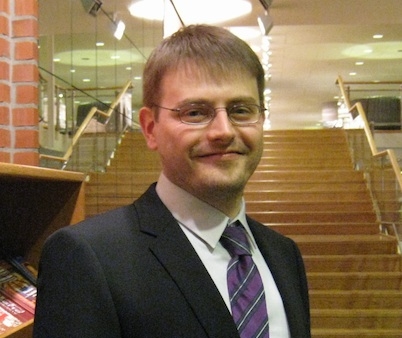
Chris: Perhaps the biggest experiment of Symphonic Fantasies was the decision to present the music in sets of 15-17 minute ‘fantasias’. Could you elaborate on why you decided to take this approach and, in your opinion, was it a well-received one?
Thomas Boecker: I thought that video game music arrangements were often lacking in musical development, and that suites could change that with recurring thematic material, layers of different melodies, creative ideas that go far off from the original music, etc. Symphonic Fantasies featured four different approaches on this regard, and each single segment worked very well in my humble opinion. For me as a producer, the feedback on the concert was ground-breaking — it was sensational! Nobody tried something like our concept before. Now that it proved to be successful, the opportunities for future concerts increased tremendously. It proved to be a success not only to the audience, but at the same time to the composers, the publisher, the orchestra etc. It was a big step, and it makes me very excited to think about what we can do in the following years.
Now I am not saying that every video game music concert needs 17 minute suites. I am saying that they can easily be a part of concerts, though, and that the audience will appreciate them if well done. The same goes for creative arrangements: At my concerts we were never interested in presenting arrangements close to the original music; I felt that personal respectful interpretations of the original music would be much more exciting, especially at Symphonic Shades and Symphonic Fantasies. The audience response proved that concept to be the right one.
Chris: Surely one of the biggest challenges in Symphonic Fantasies was deciding which pieces to present into the fantasies. How did you decide which pieces to select and how to incorporate them? In particular, how did you overcome the dilemma presented by the vast Final Fantasy series?
Thomas Boecker: We talked to the original composers who gave us their lists of favorite titles. We thought about ways how to incorporate them, though everybody knew that we would not want to be forced to put certain pieces just for the sake of popularity. The first goal was to make them sound natural in an orchestra environment. We did a lot of investigation on the actual games, listened to all the original music, and to all available arrangements. Needless to say that it took a long time, but we wanted to make it a musically fulfilling experience, and at the same time we wanted to make it clear: We know the games. We are gamers ourselves.
Final Fantasy was the most difficult segment without a question, because there is simply so much great music of it. The wonderful arrangements by Shiro Hamaguchi have to be mentioned here, too — arrangements that put a lot of pressure to every other arranger trying to work on the series.Symphonic Fantasies was a Square Enix tribute — we could not avoid obvious choices, and we did not want to either. There is a reason why their pieces often get performed all over the world; it is simply amazing music! At the same time we wanted to offer something new, though. The Final Fantasy segment is probably the most traditional one in terms of its structure, but nevertheless features something hardly seen at video game music concerts: surprises, playing with expectations. We might try a more experimental approach in case that we will arrange Final Fantasy music ever again. ForSymphonic Fantasies, where the suite was one of four different segments, it was the perfect way to go, though.
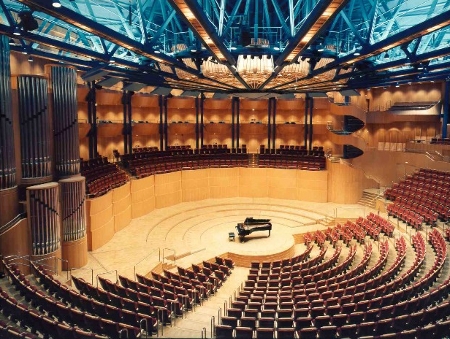
In the end it is always a thin line for any concert producer not to bore the experienced listeners and not to alienate the regular audience. I am extremely proud on how we could get such a wonderful overall balance for Symphonic Fantasies, thanks to the outstanding work by Jonne Valtonen. He perfectly hit the nail in everything he was doing, in my humble opinion. He is a true master. I have a tremendous respect for how he almost single-handedly set the new standard for video game music arrangements. I talked to a professional orchestra musician recently, and he underlined that the impressive aspect about Jonne Valtonen’s arrangements is that they are artistically rich, demanding for the orchestra but still accessible and enjoyable for a wide audience. This is really, really difficult to achieve!
Chris: Symphonic Fantasies probably received more rehearsal time than any other game music concert prior. Were two weeks of rehearsal time necessary and do you think it paid off? Were you satisfied with the performances of the WDR Radio Orchestra, choir, and soloists on the evenings?
Thomas Boecker: Yes, the two weeks were absolutely necessary. The WDR is never only rehearsing — they are also recording the music for radio broadcasts, just to have enough material in any cases. Besides, the sophisticated arrangements were all world premieres and they had never been performed before. Scores such as Secret of Mana have a lot of remarks for all the effects that have to be explained; as a result, it takes time, and you cannot rush through it. I was extremely satisfied with the quality of our performances and I thought that everybody did an outstanding job. What’s more, you could see that the musicians had fun presenting Symphonic Fantasies.
Chris: From what I could tell from our interviews, the four composers also enjoyed the performances of Symphonic Fantasies. Could you elaborate on what it was like to have them attend the event and how you perceived their feedback?
Thomas Boecker: I went to Japan end of November. At my meetings it was said several times thatSymphonic Fantasies was the best video game music concert in history, and that such an event would be very, very welcome in Japan too. Of course it means a lot to me hearing that, as somebody who got a lot of inspiration and initial motivation for producing video game music concerts from that very country — Japan!
I just can repeat myself here. We did a lot of experiments, we tried many new things. I have to express my deep gratitude here to the composers, the WDR and to Square Enix who gave us creative freedom — this is nothing self-evident and needs a lot of trust.
Chris: Taking a departure from Symphonic Fantasies, music from your previous productions Symphonic Shades and Drammatica were presented at Sinfonia Drammatica in Stockholm this year. Could you please share your experiences of this night? Was this ‘East meets West’ experience as successful as intended?
Thomas Boecker: Yes, absolutely. I think that the music of Yoko Shimomura and Chris Huelsbeck worked very well together in the concert, and both composers were full of praise for the work of their colleagues. I enjoyed listening to the concert myself very much and the different interpretation of the music by the Royal Stockholm Philharmonic Orchestra was very interesting. The Turrican II piece was even played in a slightly revised version — Jonne Valtonen took his time to work a bit on it.
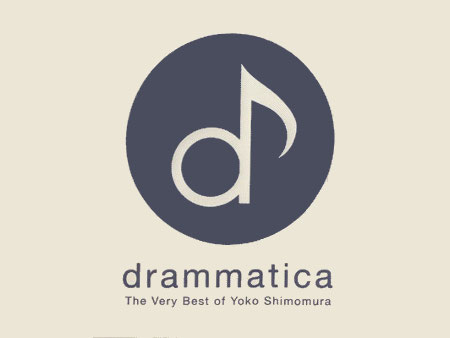
I think credit for making such an ‘East meets West’ event possible goes to Arnie Roth and the orchestra who believed in the concept, and who agreed on trying something new. There is a lot of talking going on about that matter recently, but in the case of Sinfonia Drammatica somebody truly moved forward and made it happen. The Swedish audience is probably among the most open-minded in the world, too. It is always a pleasure to come to Stockholm.
Chris: You also continue to serve as a production and tour consultant at Distant Worlds. Could you elaborate on what your role involves? Have you been involved in recent innovations for the tour, such as the recent Chicago and the upcoming Distant Worlds II concert and album?
Thomas Boecker: Most of the work was probably done at the very beginning, when I was responsible for negotiating about the tour with Square Enix and Dog Ear Records. However, every detail aboutDistant Worlds is discussed in our team, and I am always providing my ideas for all kind of developments, whether it concerns music selection, artwork use, video editing, etc. However, it must be said that Arnie Roth is the producer, and it would be pretentious to put myself too much in the focus here. He is the driving force behind Distant Worlds, and he is doing a spectacular job. I am just available to give him advice and feedback whenever needed. I am attending Distant Worlds concerts if possible, and I will be at the recording sessions of the new album too.
Chris: Despite the success of Distant Worlds, you have departed your role on PLAY! A Video Game Symphony. After ambiguity arose in Jason Michael Paul’s interview, could you clarify your role on this production and whether you were more of a creative director or passive consultant? How have you felt about the direction of the tour since your departure?
Thomas Boecker: I was Executive Producer of PLAY! for two years and launched the tour together with Jason Michael Paul. I was involved in a lot of creative decisions besides obtaining all the needed permissions for performances, artwork, and video footage from the publishers. As an example the music part, I think it is easy to see that PLAY! features a lot of arrangements from Leipzig’s Symphonic Game Music Concert series — arrangements I worked on as a creative director. Besides that, almost all other new arrangements were done by my team, which naturally put me in charge as well. Just to mention a few examples, Super Mario Bros. and The Legend of Zelda were done by Jonne Valtonen himself, two arrangements that belong to the biggest fan favorite’s of orchestral video game music ever, two arrangements that were praised for their quality by none less than Nintendo Japan. Adam Klemens, who did a lot of work for my Leipzig concerts, was a big part of PLAY! as well; examples here are World of Warcraft and Silent Hill.
For the years when I was involved in the production, it was like the Leipzig concerts going on world tour, benefiting a lot from my personal contacts to publishers and composers that I had made. It would have been impossible to put on a concert tour like PLAY! without the Leipzig concerts — or at least not within such a short time and on such a high level. No doubt, Jason Michael Paul is the major person behind PLAY! and it is his project. Honor to whom honor is due. But I think he agrees that a lot of people heavily supported him to make his tour a reality.
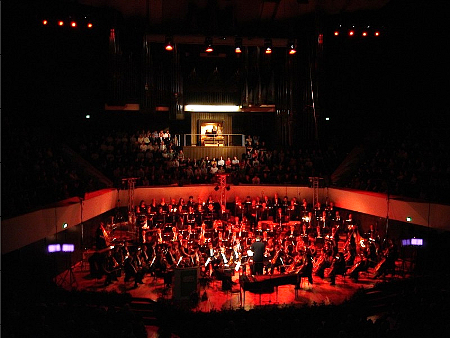
Chris: You were also mentioned in our recent interview with Tommy Tallarico of Video Games Live. If you are happy to, would you respond to these comments and clarify your stance on Video Games Liveonce and for all?
Thomas Boecker: I have absolutely nothing against Tommy Tallarico’s show. As officially stated in my interview with the German newspaper Leipziger Volkszeitung, I thought that Video Games Live and the GC (Games Convention) might even make a great fit thanks to their equally colorful concepts. As the initiator and producer of all official GC concerts from 2003 to 2007, I was sad that a respected concert series had to die, though. However, I had to accept it as a business decision by the Leipzig Trade Fair.
What I did not understand, however, was that nobody informed us about the plans in advance, and that our team had to learn about the switch by a regular press release. I felt that this was an unnecessary and not very professional move. It was an unworthy death of a successful, much-loved, and universally unique concert series at the Gewandhaus. Having said that, it did not cause any anger, but certainly humanly disappointment towards the Leipzig Trade Fair and Video Games Live. Tommy Tallarico wrote to me about his Leipzig idea briefly in 2007, at a time when I already had signed my contracts for the next Symphonic Game Music Concert, and when ticket sales were just about to start. The only possibility for Video Games Live to perform an opening concert at the Games Convention was coming to Leipzig later. Theoretically there was enough time to discuss the new plans all together, between the Leipzig Trade Fair, Video Games Live, and our team. Unfortunately this did not happen.
Chris: It’s clear from this interview series that there is quite a lot of hostility between producers of concert tours. Do you think this is a normal aspect of corporate competition or has it exceeded those boundaries? Is there room for everyone and do you think there is ever hope for reconciliations?
Thomas Boecker: For me there is no need for a reconciliation, because I have very friendly contacts to concert producers all over the world whom I respect. I think it is amazing what has been done in Sydney, Boston, Stockholm, Tokyo, and so many other towns. Of course there is artistic competition, which is vital to improve the quality of our concerts. However, hostility is not a normal, but very exclusive aspect between concert producers fortunately.
Chris: Moving to the future, there have been many rumours that a CD is in production for Symphonic Fantasies. Are you able to confirm whether this is still in progress and, if so, what we should expect in terms of presentation and recording quality?
Thomas Boecker: At this moment I cannot say much about a CD release of Symphonic Fantasies, because I have not decided yet on my role in such a production. When doing projects such asSymphonic Shades and Symphonic Fantasies, my main focus is always the actual concert. I had a lot of meetings the last weeks, and I am optimistic that an announcement will be made soon, though.
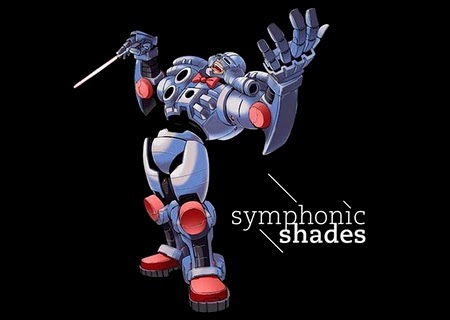
Chris: While Symphonic Fantasies and Symphonic Shades occurred in Cologne, they have received international recognition thanks to live broadcasts, official recordings, and media coverage. Have you also observed this phenomenon? Do you think there is scope for even more international expansion in the future?
Thomas Boecker: Yes, the broadcasts on radio and on the Internet had indeed a strong impact on the reception of the concerts. Besides that, Symphonic Shades‘ scores have been licensed for the use inSinfonia Drammatica, as already talked about. Recently the Duisburg Philharmonic performed music from Symphonic Shades again. I was not involved in the project, since it was a direct agreement between the WDR and the orchestra. However, it shows a great development in the world of video game music. While I cannot confirm anything particular at this moment, I wouldn’t be surprised ifSymphonic Fantasies were performed again one day, somewhere, at least in parts.
About the international expansion, there is always room for more. However, I think offering a live video stream for free as we did with Symphonic Fantasies hardly can be topped — maybe just in terms of promotion to make more people aware of it. We can further improve its quality, too. This is certainly something we can work on in the future.
Chris: On September 23, 2010, you will present Symphonic Legends at the Philharmonic Hall in Cologne. Are you able to say any more about the content of the concerts and what attendees should expect. Will all the team from Symphonic Fantasies return for the production?
Thomas Boecker: I’m pleased to say that tickets have now gone on sale for the concert and can be purchased through this link as of today.
Symphonic Legends will follow our concept of tributes. In 2008 it was a tribute to Chris Huelsbeck, in 2009 it was Square Enix, and in 2010 we will continue in that direction. Jonne Valtonen will be the main arranger of Symphonic Legends and its successor in 2011. Roger Wanamo who worked together with Jonne Valtonen on the Chronos segment for Symphonic Fantasies will be back too, and I am planning with guest arrangers; not all of them are too known in the world of video game music yet. Last but not least, I think Symphonic Legends can be described as the best of both worlds from Symphonic Shadesand Symphonic Fantasies.
Chris: Next month, you will also present a series of school concerts dedicated to Super Mario Galaxy. Could you explain further the concept of these concerts and how you will adapt the game’s music for educational purposes? How do you feel the production is progressing?
Thomas Boecker: In 2006 we presented such a concept for school concerts for the first time. The Neue Elbland Philharmonie performed music from Final Fantasy, Super Mario Bros., and selections from Prokofiev’s Peter and the Wolf. The idea was to show differences and similarities between video game music and classic music. It was received very well, and the pupils loved it. We managed to take away a bit of the fear that many children feel when thinking about orchestra music, just by adding the video game aspect that basically every pupil could relate to.
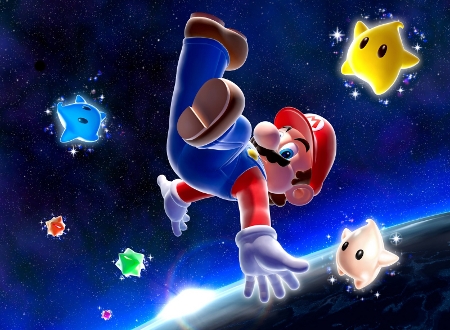
Now in 2010 we will go one step further. We will still using Peter and the Wolf as a role model, but will be adjusting the music of Super Mario Galaxy to tell a story — a compact version of the original. It will have the same educational purpose; the different instruments and different instrument groups will be introduced to the children. However, we believe that using Super Mario as the main hero will make it easier for our young audience to accept the school concerts and to learn with joy, so to speak. Jonne Valtonen is currently working on the fine tuning of the scores, and there are a lot of pieces that adult fans of video game music also would love to hear performed live, I am sure.
Chris: Thank you very much for this discussion, Thomas. Is there anything else you’d like to say about your concert productions? Also, is there anything you’d to say to game music fans around the world?
Thomas Boecker: There are fans who attended every one of our concerts since 2003 and fans who travel around the world to be in the audience when video game music gets performed. There is so much dedication and love for video game music, and I cannot thank them enough for making such events possible by showing interest! I really appreciate the trust that people put in our productions, and we will do our very best for our upcoming concerts.
Posted on December 1, 2009 by Chris Greening. Last modified on March 2, 2014.













